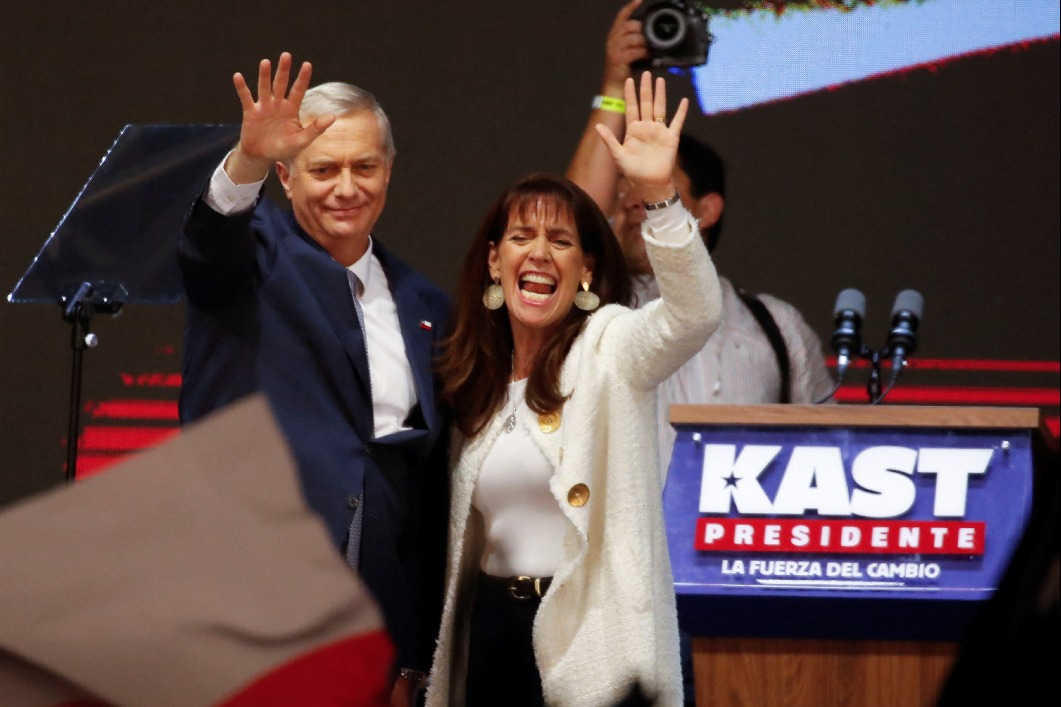UN chief warns virus unique crisis


"We are facing a global health crisis unlike any in the 75-year history of the United Nations — one that is spreading human suffering, infecting the global economy and upending people's lives," said UN Secretary-General António Guterres.
"A global recession, perhaps of record dimensions, is a near certainty," he said.
"This is, above all, a human crisis that calls for solidarity," he said while addressing journalists and the public during a live virtual briefing Thursday in which he laid out critical actions in tackling the COVID-19 crisis.
Guterres said the International Labor Organization has just reported that workers around the world could lose as much as $3.4 trillion in income by the end of this year.
He believes the current responses at the country level will not address the global scale and complexity of the crisis. He called on world leaders to come together and to offer an urgent and coordinated response.
The G20 announced it is set to hold an emergency virtual meeting next week in an effort to control the spread of the coronavirus pandemic and its growing economic impact. Guterres said he welcomes the decision by the G20 leaders and said he looks forward to taking part.
The secretary-general said that many countries have currently exceeded their capacity to care for even mild cases in dedicated health facilities, with many unable to respond to the enormous needs of the elderly. Even in the wealthiest countries, health systems are buckling under pressure.
He underlined that health spending must be scaled up to meet urgent needs and the surge in demand "with full respect for human rights and without stigma", which echoes the point of view of the World Health Organization (WHO).
On Wednesday, a top WHO official warned against calling COVID-19 the "Chinese virus", as US President Donald Trump has done repeatedly, saying that it could unintentionally lead to racial profiling.
"Viruses know no borders, and they don't care about your ethnicity, the color of your skin or how much money you have in the bank. So it's really important we be careful in the language we use lest it lead to the profiling of individuals associated with the virus," said Dr Mike Ryan, the executive director of WHO's emergencies program, at a news conference when asked about Trump's comments.
Based on China's experience, it's been proven, Guterres said, that the virus can be contained and it must be contained.
"We need to immediately move away from a situation where each country is undertaking its own health strategies to one that ensures, in full transparency, a coordinated global response, including helping countries that are less prepared to tackle the crisis," he said. "Governments must give the strongest support to the multilateral effort to fight the virus, led by the World Health Organization, whose appeals must be fully met."
Ambassador Zhang Jun, China's representative at the UN, retweeted the remarks, writing that China firmly supports the important role of the UN in the global response to COVID-19 and "will continue to do whatever we can in assisting other countries in fighting the pandemic".
Guterres also called for focusing on the social impact as well as the economic response and recovery from the outbreak.
Unlike the 2008 financial crisis, he said injecting capital in the financial sector alone is not the answer. This is not an ordinary shock in supply and demand, he said, but a "shock to society as a whole".
Guterres noted that the liquidity of the financial system must be guaranteed, and banks must use their resilience to support their customers.
He called for focusing on people — the most vulnerable, low-wage workers in small and medium-sized enterprises, which means "wage support, insurance, social protection, preventing bankruptcies and job loss", he said.
"That also means designing fiscal and monetary responses to ensure that the burden does not fall on those who can least afford it," he added.
Guterres said a number of countries are taking up social protection initiatives such as cash transfers and universal income.
"We need to take it to the next level to ensure support reaches those entirely dependent on the informal economy and countries less able to respond," he said.
Remittances are a lifeline in the developing world, especially now. Many countries have already committed to reducing remittance fees to 3 percent, much below the current average. Guterres said the current crisis requires countries to go further, getting as close to zero as possible.
As G20 leaders have taken steps to protect their own citizens and economies by waiving interest payments, Guterres noted, he called on applying that same logic to the most vulnerable countries to alleviate their debt burden.





























